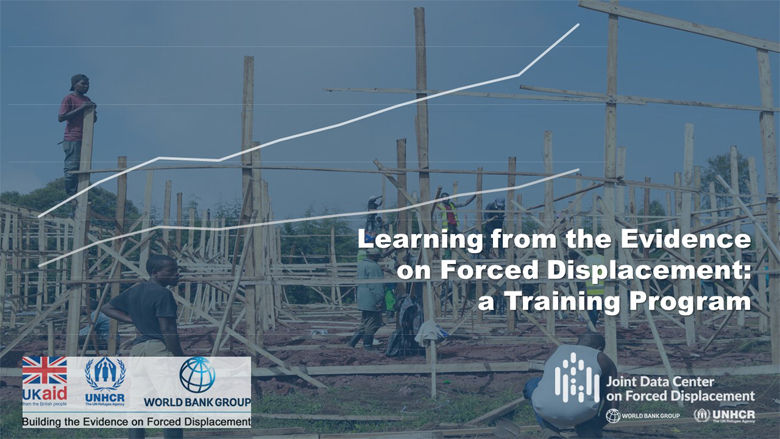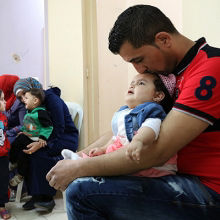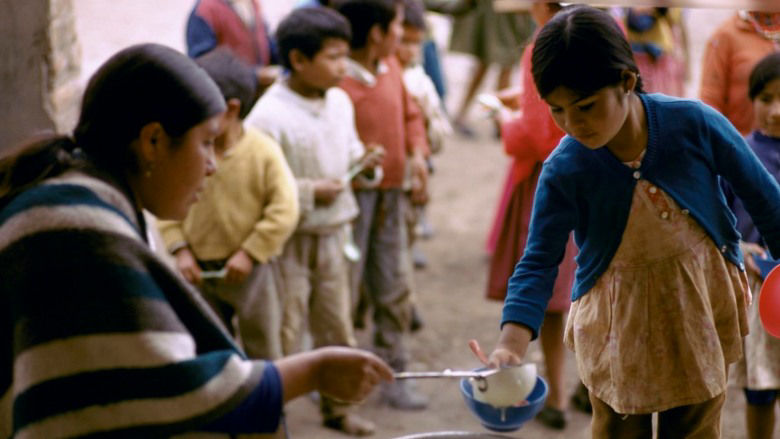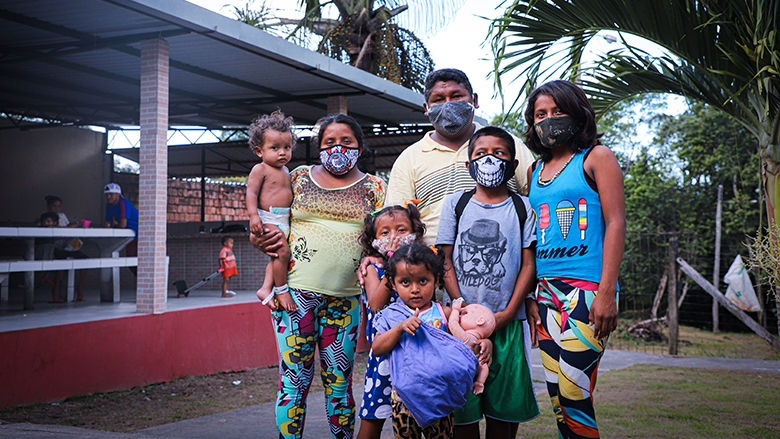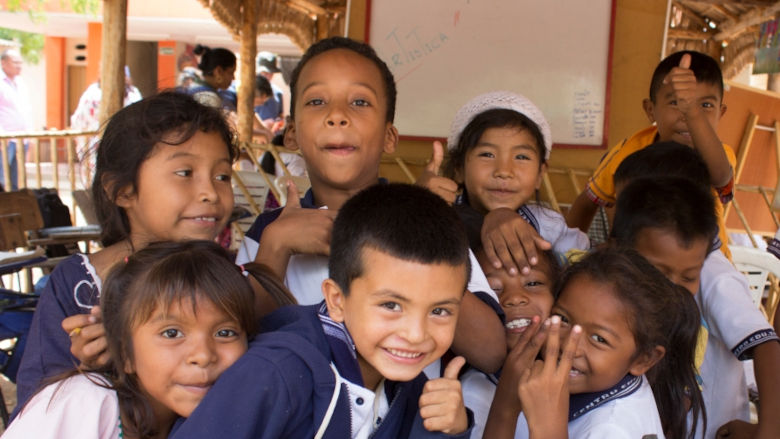Building the Evidence on Forced Displacement Seminar Series
This series of 10 seminars aims to highlight the findings of quantitative research on forced displacement and discuss the implications on programming and policy. The series was organized by the Building Evidence on Forced Displacement program, with support from Innovations for Poverty Action, the Abdul Latif Jameel Poverty Action Lab, the World Bank Development Impact Evaluation unit, the Center for Global Development, the International Rescue Committee Airbel Impact Lab, the World Food Programme and UNICEF Office of Research - Innocenti.
The psychosocial value of work: Evidence from refugee camps in Bangladesh
Our tenth seminar, The Psychosocial Value of Work: Evidence from Refugee Camps in Bangladesh, presented findings from a study of Rohingya refugees which showed that engaging in productive activities may yield benefits that go beyond earning a wage or income, such as improved psychosocial wellbeing.
Compounding barriers: Access to economic opportunities, gender and forced displacement
Compounding Barriers: Access to Economic Opportunities, Gender and Forced Displacement presented research on gender and livelihood opportunities in situations of forced displacement in Darfur and Ethiopia. These novel findings reveal how gender inequality and displacement status compound to constrict the livelihoods of displaced women and underscore the need to design durable solutions through inclusive, intersectional approaches.
Gender norms and conflict-induced displacement: evidence from Colombia and Jordan
Our eighth seminar, Gender norms and conflict-induced displacement: evidence from Colombia and Jordan, presented findings on the impact of forced displacement on gender norms in Colombia and Jordan. These novel studies underscore the complex and nuanced ways that attitudes around gender change through displacement.
Part of the 2022 Fragility Forum, our seventh seminar, Building the Evidence on the Gender Dimensions of Forced Displacement, highlighted the challenges facing women and girls in situations of forced displacement. During displacement, families are often separated, assets and livelihoods are lost or disrupted, and women face higher risks of intimate partner violence. But access to social services and employment may be better than in their places of origin. The experience of displacement, as well as the barriers and opportunities displaced people face, differ strongly between women and men. However, surprisingly little is known about these gendered dimensions of displacement.
The 'Graduation Approach' in FCV settings
A podcast, The Graduation Approach in FCV Settings, was also featured at the Fragility Forum 2022. The speakers presented five case studies of impact evaluations of ˇ®graduationˇŻ programs implemented across FCV contexts in Afghanistan, Uganda, the DRC, Nigeria and Mozambique.
Gender and multidimensional poverty in forced displacement: Measuring what matters
During displacement, families are often separated, assets and livelihoods are lost or disrupted, and women face higher risks of intimate partner violence. But access to social services and employment may be better than in their places of origin. The experience of displacement, as well as the barriers and opportunities displaced people face, differ strongly between women and men. However, surprisingly little is known about these gendered dimensions of displacement.
Gender Dimensions of Forced Displacement
Showcasing the launch of the World Bank GroupˇŻs year-long Gender Equality and Development +10: Accelerate Equality initiative, the Gender Dimensions of Forced Displacement event explores the important progress made and lessons learned in reducing gender gaps and increasing womenˇŻs economic empowerment over the last decade. This high-level event takes stock of remaining challenges while strengthening partnerships with a diverse group of stakeholders in the quest to #AccelerateEquality.
Intimate partner violence and forced displacement
There are considerable knowledge gaps surrounding the impacts of forced displacement, especially in terms of how men and women are affected differently. Ĺ·ĂŔČŐb´óƬˇŻs Gender Dimensions of Forced Displacement program seeks to bridge some of these gaps by studying how gender inequality interacts with and compounds forced displacement. In the first of four webinars under this series, World Bank Senior Gender-based Violence Specialist Diana Arango and HarvardˇŻs Dr. Jocelyn Kelly presented research on the heightened risks of intimate partner violence among displaced women in Colombia, the DRC, and Liberia. These novel studies shed light on the relationship between instability and conflict in the community and violence in the home and point to critical policy implications for protecting women from abuse.
Venezuelan migrants and refugees in Brazil: Challenges to integration and local impact
In October 2020, more than 261,000 Venezuelan nationals were living in Brazil, representing the largest share of BrazilˇŻs 1.3 million refugee and migrant population. While the economic gains of immigration are well documented, evidence on the impact of forced displacement are mixed and focused mainly on high income countries. BEoFD Young Fellow Mrittika Shamsuddin and co-authors investigate the short-run fiscal impact of Venezuelan refugees and migrants on the public expenditure and revenue of Roraima state and on labor market outcomes, including unemployment, employment and earnings. The study, titled Economic and Fiscal Impacts of Venezuelan Refugees and Migrants in Brazil, expands on a previous paper which looked at VenezuelansˇŻ access to education, social protection programs and labor market outcomes in Brazil.

Do vouchers work? The impact of humanitarian assistance on displaced people in Eastern Democratic Republic of the Congo
The second seminar of the series focused on a study looking at the impact of providing vouchers for essential household items (EHIs) on child health, mental health, resilience and social cohesion among internally displaced persons and their hosts in the Democratic Republic of Congo. The evaluation found positive and significant improvements to participantsˇŻ mental health, both 6 weeks following the intervention and a year later. This study provides highly credible evidence, using randomized assignment, that the provision of EHIs via vouchers causes substantial improvement in adultsˇŻ mental health and mixed effects on resilience and social cohesion.
The inaugural seminar of the series featured a presentation of the paper, Prison or Sanctuary? An Evaluation of Camps for Syrian Refugees by Thomas Ginn, Research Fellow at the Center for Global Development. Other presenters included: Ewen Macleod, Former Director, Division of Resilience and Solutions, UNHCR; Chinedu Obi, Young Fellow in Forced Displacement, FCDO-UNHCR-WB forced displacement research program; Marine Casalis, Senior Research and Partnerships Manager, ETH Z¨ąrich, Immigration Policy Lab; and Haneen Ismail Sayed, World Bank Lead Operations Officer, Social Protection and Jobs Global Practice. The event was moderated by Paolo Verme, Lead Economist and Program Manager, World Bank.

